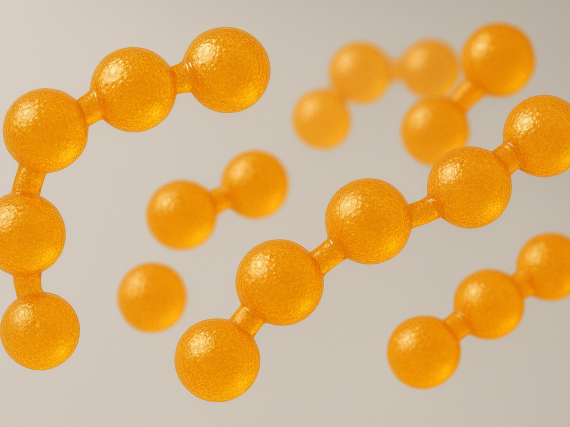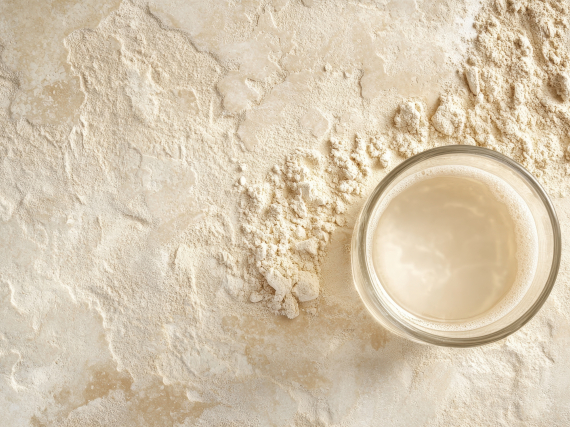For individuals managing obesity (adipositas) with GLP-1 agonists (such as semaglutide or liraglutide) and experiencing side effects, collagen peptides can offer complementary support. GLP-1 medications are designed to promote satiety and aid weight loss by slowing gastric emptying and reducing appetite, but they may also cause side effects like nausea, bloating, and digestive discomfort. Here’s how collagen peptides may help manage both adipositas and the potential side effects of GLP-1 medications.
Using Collagen Peptides to Support Weight Loss and Manage GLP-1 Side Effects in Obesity Treatment
For individuals managing obesity (adipositas) with GLP-1 agonists (such as semaglutide or liraglutide) and experiencing side effects, collagen peptides can offer complementary support. GLP-1 medications are designed to promote satiety and aid weight loss by slowing gastric emptying and reducing appetite, but they may also cause side effects like nausea, bloating, and digestive discomfort. Here’s how collagen peptides may help manage both adipositas and the potential side effects of GLP-1 medications:
Gentle on the Stomach
- Easily Digestible Protein: Collagen peptides are hydrolyzed, meaning they’re broken down into smaller amino acids that are easy to digest. They’re typically well-tolerated and may not contribute to nausea or bloating, which are common side effects of GLP-1 medications.
- Light Meal Option: For those who struggle with nausea or reduced appetite, collagen peptides mixed with water, a smoothie, or herbal tea can provide gentle nourishment without overwhelming the stomach.
Supporting Gut Health
- Healing the Gut Lining: Collagen contains the amino acid glycine, which helps strengthen the gut lining and can potentially alleviate digestive discomfort. If GLP-1 medications cause gastrointestinal issues, collagen may provide a soothing effect on the digestive system.
- Reducing Inflammation: Glycine in collagen peptides also has anti-inflammatory properties, which can help manage inflammation in the digestive tract. This may be beneficial if side effects include gastrointestinal irritation.
Maintaining Muscle Mass During Weight Loss
- Muscle Preservation: Collagen peptides provide amino acids that help support lean muscle mass, which is essential for maintaining a healthy metabolism during weight loss. Since GLP-1 medications reduce appetite and caloric intake, collagen can help prevent muscle loss while promoting fat loss.
- Workout Recovery: If you’re engaging in physical activity as part of your weight management plan, collagen peptides can support muscle recovery, especially when combined with strength training exercises.
Providing Satiety Without Heavy Meals
- Low-Calorie Satiety: Collagen peptides can be mixed into liquids or light snacks that are easy to consume and don’t contribute to feelings of fullness or bloating. This can be particularly helpful when managing the slowed gastric emptying caused by GLP-1 medications.
- Blood Sugar Stability: Collagen has a low glycemic index, meaning it won’t cause spikes in blood sugar. Stabilizing blood sugar can help reduce energy dips and hunger pangs, which can support overall satiety.
Enhancing Skin Health During Weight Loss
- Improving Skin Elasticity: Collagen peptides can help improve skin elasticity, which is beneficial when losing weight, as rapid weight loss can sometimes lead to loose skin.
- Supporting Joint Health: Collagen is known for its benefits to joint health, which can be crucial if you’re increasing physical activity. Healthy joints are essential for staying active, especially if GLP-1 medications allow for more movement with weight loss.
How to Use Collagen Peptides While on GLP-1 Medications
- Dosage: Begin with a daily dose of 10-15 grams of collagen peptides. They can be taken in the morning or evening, whichever fits best with your routine and medication schedule.
- Combining with Other Foods: For a complete protein source, try mixing collagen with other foods like yogurt, almond milk, or a smoothie that contains fruits and other protein-rich ingredients.
- Hydration: Staying hydrated can help manage GLP-1 side effects, as well as aid in the absorption of collagen. Drink plenty of water, especially if you’re incorporating collagen into your diet.
Other Considerations
- Monitor Protein Intake: GLP-1 medications can reduce overall appetite, so it’s important to ensure you’re getting adequate protein, even if you don’t feel hungry. Collagen can be a convenient way to increase your intake without heavy meals.
- Gentle Exercise: Pairing collagen with gentle exercise, like walking or yoga, can support muscle tone, boost metabolism, and improve mood, which may help counterbalance some of the side effects of GLP-1 medications.
Overall, collagen peptides can serve as a gentle, well-tolerated protein supplement that may complement the effects of GLP-1 medications for weight management. Since GLP-1 medications can sometimes reduce appetite, collagen can help maintain muscle and skin health while avoiding feelings of nausea or bloating often associated with larger meals.







